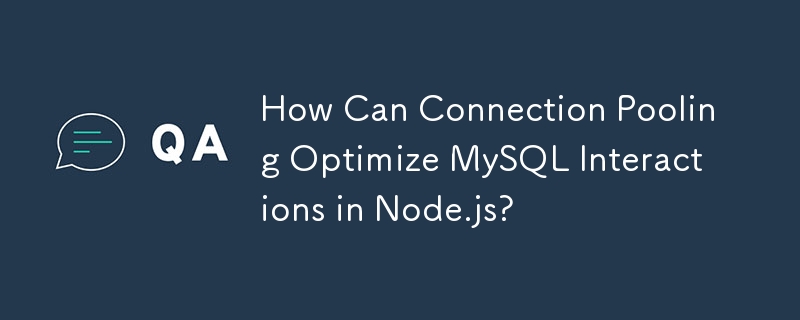

When working with MySQL databases in Node.js applications, efficiency is crucial. The node-mysql module provides a powerful way to optimize database interactions through connection pooling.
You've created a module named mysql.js to handle connection pooling:
var pool = mysql.createPool({
// MySQL connection details
});By utilizing this pool, you can avoid creating multiple connections for each database query. Instead, you can retrieve connections from the pool as needed, significantly reducing overhead.
You can obtain a connection from the pool using getConnection():
mysql.getConnection(function(err, conn){
// Query the database
conn.query("select * from users", function(err, rows) {
// Respond with the results
})
})It's essential to release the connection back to the pool when finished:
connection.release();
If you forget to end connections, they will remain open and unavailable to other requests, potentially leading to performance issues.
To simplify connection acquisition, you can modify the mysql module to return only a connection:
var getConnection = function(callback) {
pool.getConnection(callback);
};
module.exports = getConnection;This eliminates the need to write getConnection() explicitly before each query.
Connection pooling is a highly recommended best practice for enhancing the efficiency of Node.js applications interacting with MySQL databases. By following these guidelines, you can streamline your database operations and achieve optimal performance.
The above is the detailed content of How Can Connection Pooling Optimize MySQL Interactions in Node.js?. For more information, please follow other related articles on the PHP Chinese website!




